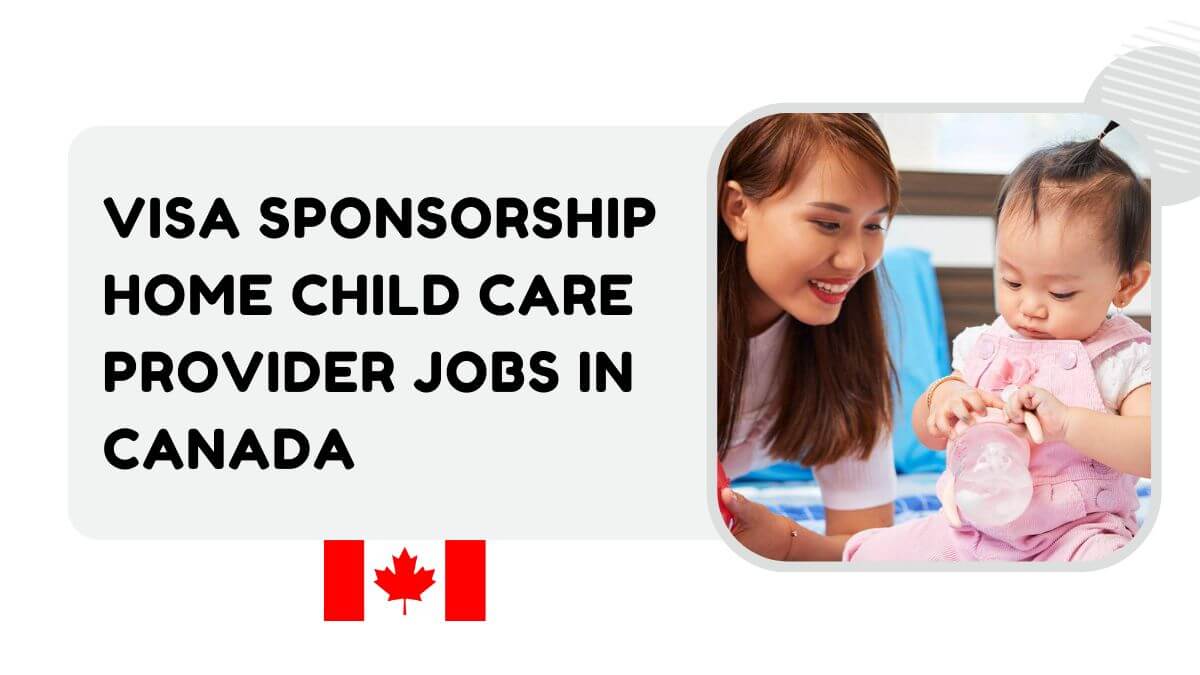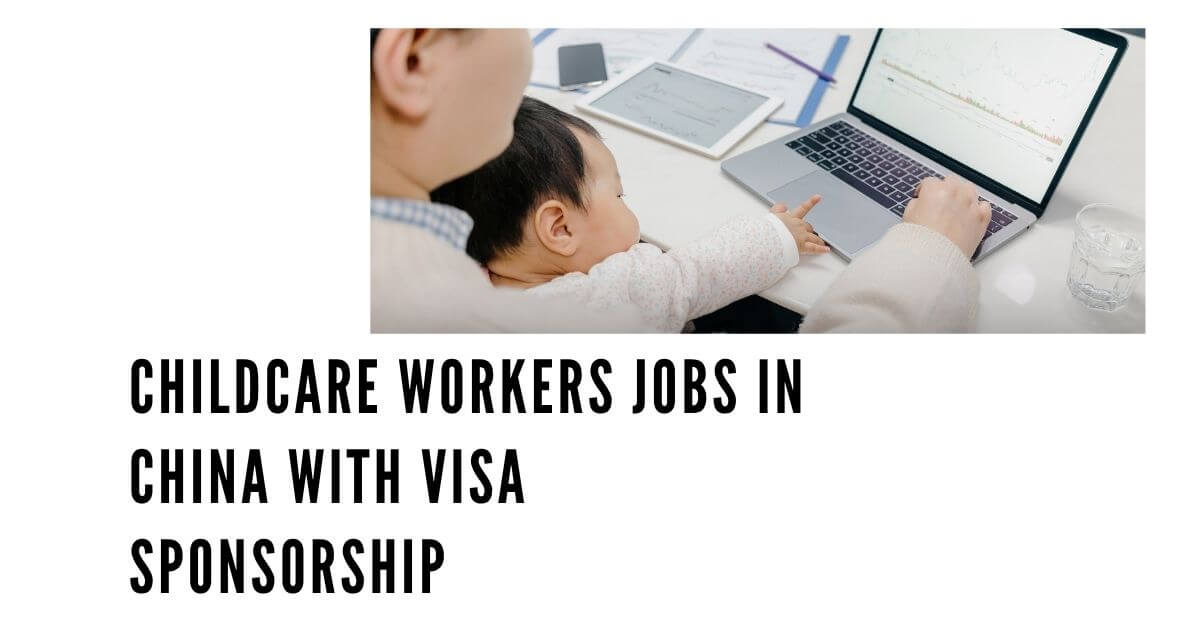Nanny Jobs in USA With Visa Sponsorship 2025 – Apply Now

Are you considering a career transition that involves working abroad and making a positive impact on children’s lives? A nanny position in the United States, particularly with visa sponsorship, could be an exciting opportunity.
If you’re curious about how to embark on this journey or want to explore your options, this guide provides you with essential, accurate information on securing a nanny job in the U.S.
Check Also: Patient Researcher Jobs in USA with Visa Sponsorship
What Is a Nanny Job?
A nanny job in the U.S. involves providing childcare services to families. This typically includes tasks like child care, light housekeeping, meal preparation, and sometimes even assisting with educational needs. It’s a role that can be deeply rewarding, offering both personal satisfaction and professional experience in childcare.
Who Can Apply for Nanny Jobs in USA With Visa Sponsorship 2025?
International candidates seeking nanny jobs in the United States with visa sponsorship should meet the following basic requirements:
- Age: You must be at least 18 years old. Some programs may have upper age limits (typically 30 years old).
- Education: A high school diploma or equivalent is required. Additional certifications in childcare or early childhood education can be beneficial.
- Experience: Experience working with children (e.g., babysitting, childcare, or teaching) is highly valued.
- Health: A clean bill of health is typically required.
- Background Check: You must pass a criminal background check.
- Visa Requirements: The most common visa types for nannies are the J-1 Exchange Visitor Visa and H-2B Temporary Worker Visa. These visas allow international candidates to live and work in the U.S. temporarily.
Types of Nanny Jobs in USA:
There are different types of nanny roles, each with its own set of duties and requirements. Here are some common nanny job categories:
- Live-In Nanny: Provides full-time care and lives with the family. This option often includes room and board.
- Live-Out Nanny: Commutes daily to the family’s home to provide childcare. Typically, the hours are more structured, and you may have more personal space compared to a live-in role.
- Special Needs Nanny: Works with children who have physical or developmental disabilities, providing personalized care and support.
- Summer Nanny: Provides care only during the summer months, often for families whose children are out of school.
- Au Pair: While technically a cultural exchange program, an au pair can be a nanny who lives with a family and participates in light household duties while also sharing their culture with the children.
Each role may require specific skills or qualifications, such as CPR certification, proficiency in English, or a valid driver’s license.
Key Responsibilities:
Nanny duties can vary depending on the family’s needs, but typically include:
- Childcare: Supervising and engaging with children during playtime, meals, and daily routines.
- Educational Support: Assisting with homework, organizing educational activities, and fostering learning through play.
- Light Housekeeping: Tasks may include cleaning children’s rooms, doing laundry, and preparing meals for the children.
- Transportation: Driving children to and from school or extracurricular activities.
- Emergency Care: Being prepared to manage emergencies, such as child illnesses or accidents, including administering first aid if necessary.
Visa Options:
International candidates often seek visa sponsorship for nanny roles in the U.S. There are two main visa options for this type of employment:
- J-1 Exchange Visitor Visa:
- Purpose: This visa is typically used for individuals participating in cultural exchange programs, such as au pairs and nannies. It allows you to live and work in the U.S. for up to two years.
- Requirements: You must apply through a designated sponsor organization that handles the J-1 visa process. You will need to prove your ability to care for children and complete a medical exam and background check.
- Benefits: Includes cultural exchange opportunities and access to a support network through the sponsor organization.
- H-2B Visa (Temporary Worker Visa):
- Purpose: This visa allows U.S. employers to hire foreign workers for temporary non-agricultural positions. It is used in certain nanny positions where there is a temporary need for childcare.
- Requirements: The employer must prove that there are no qualified U.S. workers for the position and must offer a prevailing wage as determined by the U.S. Department of Labor.
Benefits:
Salaries for nannies in the U.S. can vary widely depending on location, experience, and job type. On average, nannies can earn anywhere from $25,000 to $50,000 annually. Additional benefits may include:
- Room and Board:
For live-in nannies, families may offer free accommodation and meals. - Health Insurance:
Some families offer health benefits, particularly for long-term or live-in roles. - Paid Time Off:
Many families offer paid vacation time and sick leave. - Travel:
If you are hired to travel with the family, your travel expenses may be covered.
How to Apply for Nanny Jobs in USA With Visa Sponsorship 2025?
To increase your chances of obtaining a nanny position with visa sponsorship in the U.S., follow these steps:
- Build Your Resume: Highlight your childcare experience, any relevant certifications (e.g., CPR, first aid), and your passion for working with children.
- Search for Job Listings: Use online job platforms, specialized nanny agencies, and visa sponsor organizations to find open positions. Websites like Care.com, Indeed, and the International Nanny Association (INA) can be useful resources.
- Prepare for Interviews: Be ready to discuss your childcare experience, your interest in living and working in the U.S., and how you can contribute to the family’s needs.
- Consult Visa Sponsorship Agencies: Work with an agency that can sponsor your visa. Agencies specializing in J-1 visas for au pairs or other childcare roles are helpful in guiding you through the process.
- Understand the Process: Familiarize yourself with the specific visa requirements for the role you’re applying for. Ensure that you meet all criteria for the visa type you’re seeking.
Conclusion:
Securing a nanny job with visa sponsorship in the USA is a great way to experience American culture while providing essential childcare services. With the right qualifications, a strong passion for working with children, and a clear understanding of the visa process, you can embark on an enriching career abroad. Take the first step toward your new career today by applying for nanny positions and exploring visa sponsorship opportunities!
Frequently Asked Questions:
-
How much do nannies earn in the USA?
Nannies typically earn between $17 and $26 per hour depending on location and experience. This can vary by region, with nannies in major cities like New York or San Francisco often earning higher wages.
-
Can a U.S. citizen hire a foreign nanny?
Yes, U.S. citizens can hire a foreign nanny, but they must prove that no qualified U.S. workers are available for the role through programs like PERM (Permanent Labor Certification), or opt for a J-1 or H-2B visa.
-
How do I get a nanny visa for the USA?
To obtain a nanny visa, such as the J-1 Exchange Visitor Visa, you must apply through a designated sponsor organization. This process typically involves an interview, medical exams, and background checks.



